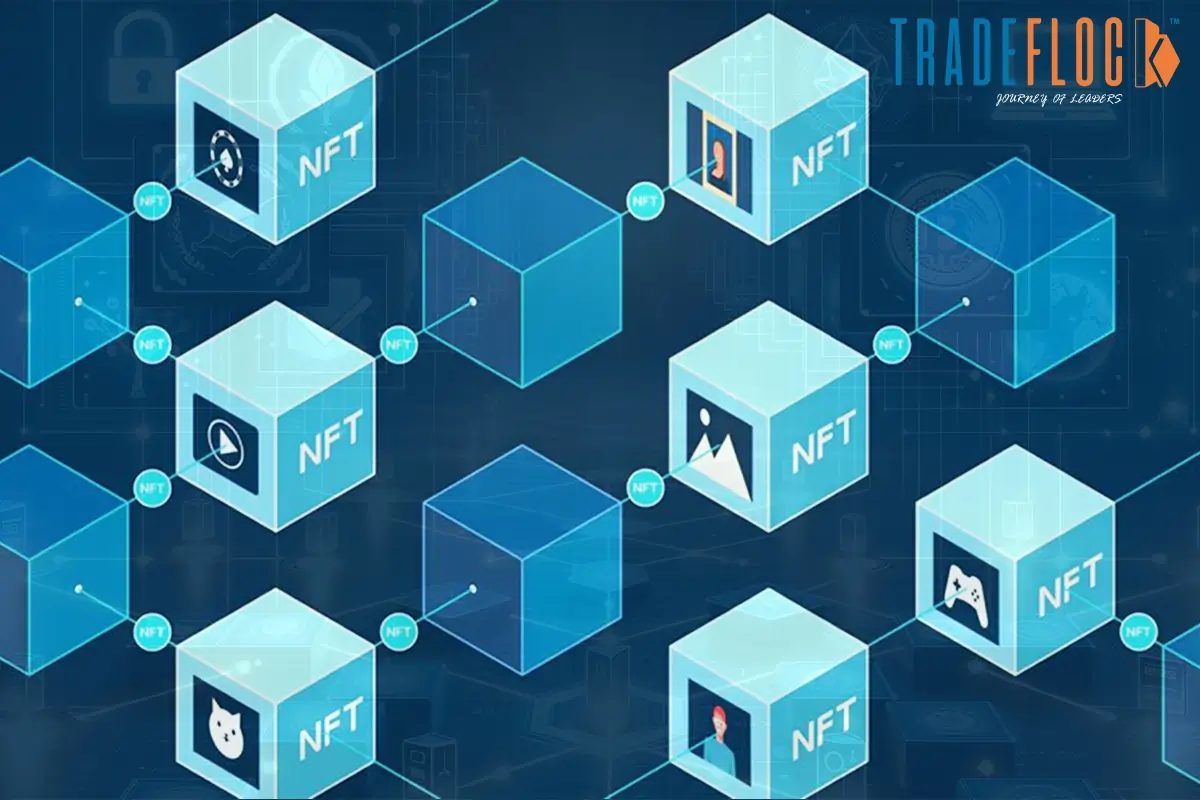Ever since the first Bitcoin was issued in 2008, blockchain technology has been advertised as the backbone of cryptocurrency. However, over a decade, cryptocurrency and bitcoin have garnered tremendous attention; their underlying technology, blockchain technology, is silently working in the shadows to streamline business operations by using various blockchain security applications. Today, blockchain is not just considered a tool for cryptocurrency but also a powerful weapon that can be used to encrypt personal or private data.
This came at the right time, as the world is experiencing a period of uncertainty regarding cybersecurity. Many experts claim that the global cyberattack will cost firms around $10.5 trillion by 2025. This is a big number considering that the Nominal GDP of many countries is less than this. This is when blockchain security comes into play, offering innovative solutions to some of the most pressing issues in the world right now. In this blog, we will take a look at some of the sectors or industries where it is being used or can be used to streamline operations.
Table of Contents
Top Blockchain Security Applications
Here are some of the applications of blockchain in security.
Data Management
One application of blockchain security is data integrity. Traditionally, data is stored in centralized databases, which are susceptible to cyberattacks, tampering, unauthorized access, and hacking. However, blockchain distributes the same data in nodes or blocks spread across a distributed network, making tampering or hacking those nodes or blocks virtually impossible. In order to tamper with a particular node, the hacker will have to tamper with the whole blockchain, which is not possible through traditional computers or methods. This makes blockchain security the Achilles heel of hackers.
A key example of this can be seen in the healthcare industry. According to a 2022 report by Cybersecurity Ventures, the healthcare industry witnessed a 48% increase in the number of cyberattacks during the pandemic. This puts the data of patients and their families at risk, allowing for malicious activities. By incorporating blockchain in their databases, healthcare providers can make immutable records of their patients and ensure their safety. Moreover, Fintechs also use blockchain to track the transaction and analyze the transactions for any suspicious technology.
Identity Management
Earlier, people used to think that biometrics were perhaps the best way to secure an identity. However, the recent upsurge in identity theft has proven otherwise. Again, the problem is the centralized databases of firms and identity systems. A centralized data system has many vulnerabilities which can be exploited by anyone with a good grasp of hacking. Blockchain security allows users to manage their identity themselves using a decentralized platform.
According to the World Economic Forum, by 2030, around 3 billion people will manage their identities using a decentralized database. One example of such tech is ION, a decentralized identity management system made by Microsoft. It uses the Bitcoin blockchain and allows the user to create and manage their own digital identity, reducing the chances of identity theft by quite a margin.
Supply Chain management
If anything, the global unrest has taught us one thing: our current supply chains are not reliable. Traditional supply chains use centralized databases, which makes them susceptible to error and inefficiency. Moreover, they are prone to fraud, making tracking the supply chain very hard.
By recording the data of each transaction, companies can create an immutable audit trail that can be tracked from the point of origin to movement, handling, and final destination. One prime example of this blockchain security being used is IBM’s Food Trust. By using blockchain to trace food products from farms to the endpoint, IBM’s Food Trust solution enhances food safety and reduces the likelihood of foodborne illnesses. In a world where the global counterfeit market is projected to reach $4.2 trillion by 2024, blockchain’s role in securing supply chains is more important than ever. One business that can significantly benefit from it is the Italian cheese market. Con artists are using the name of famous Italian Cheese like Parmigiano Reggiano and selling it as the original Parmesan, which hurts the value of the real deal.
Elections
This might come as a surprise, but one of the most important blockchain security applications is elections. Currently, elections in some of the biggest democracies in the world, like India, the UK, the USA, and France, use EVM or electronic voting machines. These EVMs work differently in different countries. However, in recent years, it has been seen that the parties of these countries have been reporting instances of fraud. For instance, in the 2016 Presidential elections in the US, the democrats said that republicans hacked the EVM to get more votes. Similarly, The UPA alliance in India accused the NDA alliance of wrongdoings in the elections. Whether the opposition is right or wrong, one thing is certain: we have to come up with a new technique for conducting elections. This is where blockchain security comes in.
Blockchain security ensures that the votes that are being cast are registered as individual blocks or nodes. This way, every vote will represent an individual block, and tampering with one block means tampering with the whole chain, which is impossible. This makes blockchain security a go-to solution for elections.
Blockchain Security: A Step Towards a Safer Future
Blockchain security, or blockchain in general, is a boon for mankind. If used carefully, it can address the increasing vulnerability of our current systems. In a time when AI has become much more prominent than before, it is absolutely necessary that we devise a new plan to safeguard our system and ensure that there are no cases of fraud ever again.





